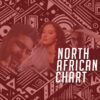Listeners:
Top listeners:
-
 play_arrow
play_arrow Cosoro Afrobeats UK's No.1 Afrobeats Radio Station
-
 play_arrow
play_arrow Cosoro Pidgin Na we b d No.1 UK Pidgin Radio
-
 play_arrow
play_arrow Cosoro Evergreen UK's No.1 Radio for Timeless African Sounds
Gospel star Tim Godfrey breaks silence days after backlash over collab with Afrobeats’ Oxlade

Nigeria gospel singer, Tim Godfrey has broken his silence over his latest single Infinity, which features Nigerian singer Oxlade. The song appears as part of his upcoming album titled No Label.
Several days after the single’s release, critics from the Christian community and fans of traditional gospel music voiced strong discomfort. The crux of the criticism: Oxlade, known for his secular hits and linked in the past to a recorded intimate video scandal was an unlikely partner for a gospel minister. Many argued that the collaboration undermined the spiritual integrity of gospel music.
After staying silent for a few days, Tim Godfrey addressed the backlash in an open-letter titled “To the Labeled.” In it he acknowledged feelings of being misunderstood, recalling how others had once labelled him “worldly,” “rebellious,” or “unspiritual.” He made clear his intention: the collaboration was grounded in a message of acceptance, grace, and reaching the people who feel excluded.
He framed the upcoming album No Label set for release on October 31, 2025 as more than just a musical collection. According to him, it represents “a movement for freedom, love and inclusion,” for anyone ever boxed in by expectations or stereotypes.
This episode sits at the intersection of multiple forces in Nigerian music and culture. On one hand, gospel music in Nigeria has often been anchored in a “safe image”, artists whose personal brands align closely with conservative expectations of faith, purity and worship. On the other hand, Nigerian music has embraced hybrid forms, cross-genre collaborations, and broader appeal.
Tim Godfrey’s collaboration with Oxlade, and his subsequent explanation signals an attempt to blur the strict boundary between “gospel” and mainstream Afrobeats. He argues that ministry can happen in unexpected collaborations, and that the message can supersede the image. Critics worry, though, that the image still matters: that partnering with someone whose past is controversial risks delegitimising the spiritual message or confusing the audience.
The debate reveals deeper questions: Is gospel music strictly for worship settings, or can it engage mainstream pop production and wider culture? Does collaborating with secular artists dilute the message, or expand its reach? How much does the artist’s personal brand and lifestyle matter for audiences of faith?
Written by: Adedoyin Adedara
Similar posts
Recent Comments
No comments to show.
Copyright © 2025 Cosoro Radio | All rights reserved









